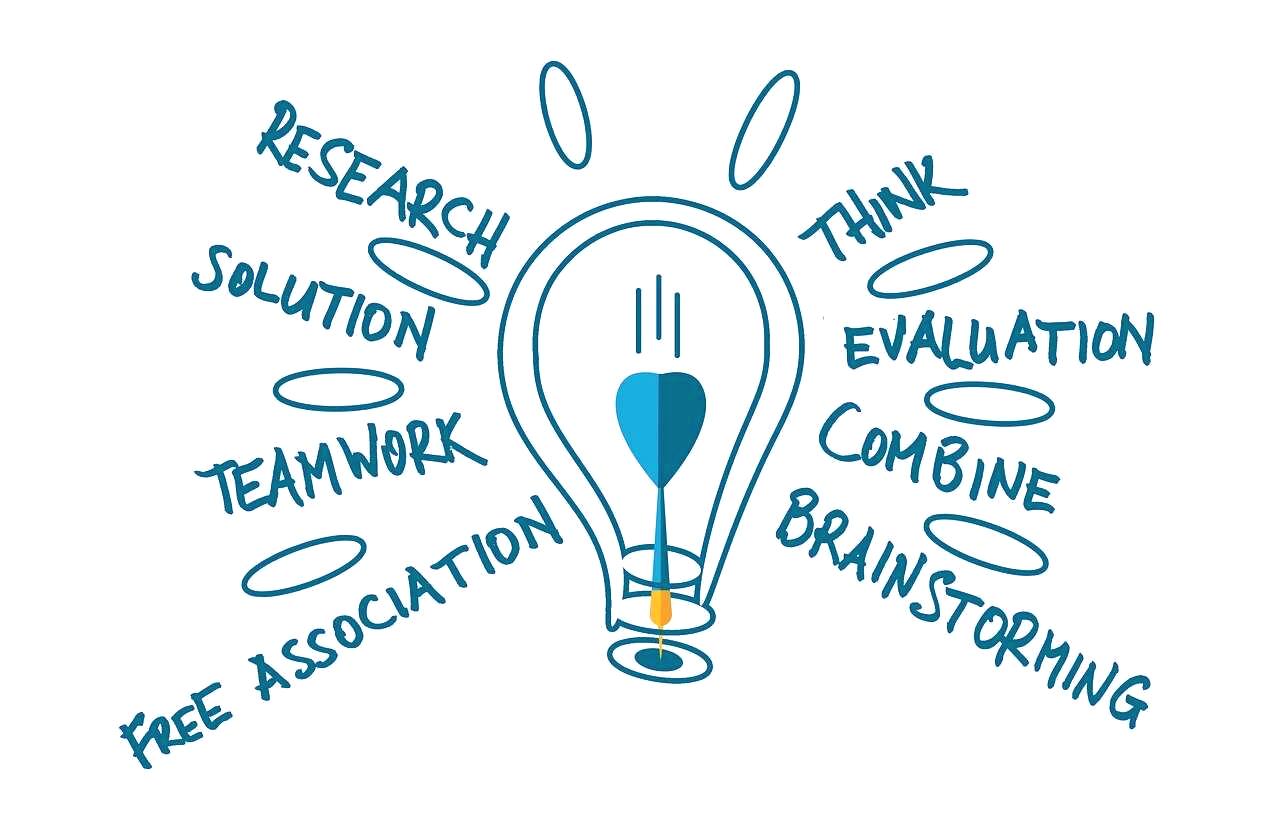Mr Rajesh Mahapatra
Founder-Director
Who We Are
A New Journey, Another Chapter, and a Fresh Dawn
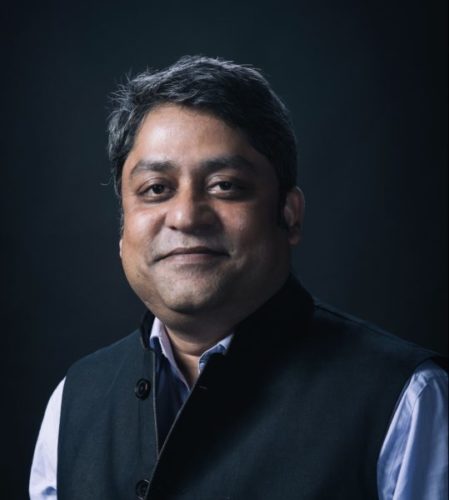
The Covid-19 pandemic of 2020 has unsettled much of what we took for granted. The everyday world of human interaction, social solidarity, travel, public gatherings and even the bustle of the daily market place have rapidly become zones of vulnerability and potential danger. The implementing of an unduly hasty and harsh lockdown in late March of 2020 and its subsequent extensions, albeit with increasing relaxations, have only added to the toll of emotional exhaustion and economic ruination. We rightfully wondered if this was indeed a tipping point — the decisive end of all that we once held to be familiar? or, perhaps, a dramatic denouement, for a new normal.
Amidst the turmoil and the shake-up, however, other equally profound questions also began to surface. Could deliberations, debates and discussions be possible, when human interaction and intimacy have themselves become sources for anxiety and fear? How can conversations be meaningfully carried out when so much depends on face-to-face communication?
Clearly, the Covid-19 pandemic, if not carefully and thoughtfully addressed, could indeed undermine some of our most cherished and valuable achievements in independent India ─ the idea of democracy, social harmony and economic justice.
Without a vibrant, functioning and evolving democracy can a state such as Odisha meet its many developmental aspirations? Odisha is socially diverse with a mixed population of castes, tribes and varied cultural and religious groupings. Economically too, it spans the full range of inequalities. At the apex of the pyramid are the urban consumer lifestyles, while the thick bottom base comprises rural and forest livelihoods. On the East lie the flat deltaic coastal districts that abut the Bay of Bengal and to the West are the forested hills that are occasionally interrupted by fertile sweeping valleys. And connecting these different topographical zones are volatile river systems that can be full of furious energy during the monsoons but diminish to barely a trickle when the rains fail.
Given Odisha’s layered social and ecological diversity, tackling the impact of Covid-19 cannot be reduced to simply turning it into a governance challenge. If anything, as many of us quickly realized, the pandemic required a wholesome response involving popular mobilization, heightened civic awareness, an energized civil society and, above all else, an ability to inspire new imaginations for cooperation, responsibility and solidarity. While, undoubtedly, a tall and demanding list for things to be done and achieved, taking a crisis head-on demanded both innovation and the stamina to pursue fresh beginnings.
It is in such a context of constraint and opportunity that a group of women and men, united in their desire to contribute to a better future for Odisha, came together to explore how the state could turn the Covid-19 crisis into an opportunity; how the road to recovery could be designed to reimagine the future. Between May and June of 2020, as many as seven webinars were held under the banner of Odisha Alochana Chakra as part of a series titled Odisha Post Corona: The Road to Recovery. Each episode engaged participants from different walks of life and different parts of the world, with lively discussions drawing upon the intellectual resources of top academics, policy makers, influencers and by the many who were driven by curiosity and the intention to learn. The overwhelming success of this series encouraged us to think of going beyond the webinars and explore a more institutionalised approach to the development concerns of the state.
Odisha Alochana Chakra, which was until then a loosely-held group holding talk shows, was thus rechristened as the Forum for Odisha Dialogues and registered as not-for-profit company under Section 8 of the Companies Act.
Odisha Dialogues is being positioned as a non-partisan platform for a meaningful dialogue on Odisha’s future, as a research body that would seek to adequately inform governance and policy making, and as a think tank that would strive to create an alternative vision for the state.
While the need for such an institution was only too obvious, what, nonetheless, emerged, even more strongly, were the underlying premises for the initiative. Firstly, the conviction that an informed citizenry was the primary building block for sustaining a vibrant democracy. A citizenry, moreover, that was not reduced to being a mere spectator to an electoral cycle but was instead enabled and capable of being active and vocal in governance. That is, a commitment of the citizen to pursue participative democracy rather than only accepting the limited responsibilities for representative democracy.
Our second premise is that Odisha Dialogues will pursue policy as the primary mode for intervening and shaping governance outcomes and decision making. In other words, politics is not the primary domain for action but rather it will be the intent to make policy work through professionals and experts. Lastly, Odisha Dialogues will strive for realizing meaningful development outcomes for Odisha not as an end in itself but as the means for deepening democracy and building institutions that sustain capability and wellbeing.
It is with these grand ambitious that Odisha Dialogues, aka Odisha Alochana Chakra, endeavours to begin a fresh chapter not only as a forum but also with the hopes of making a positive difference to Odisha and its people.
- Bring together the best of minds, the best of talent, for a meaningful dialogue on Odisha’s future
- Seize the transformative moment that has emerged in today’s Odisha to design a blueprint that could help build a new, smart future for the state by harnessing social change and creating an environment for participatory democracy
- Create an environment where discussion, and disagreement are part of the conversation and debates are participatory in nature where values such as secularism, cosmopolitanism, tolerance and reason are strongly embraced
- Re-energize the ‘eternal cultural foundations’ that once shaped the Odia identity through fresh engagement and creative interpretation
- Engage with all such research and academic pursuits and contribute to all-such action-oriented projects that help achieve the above-stated objectives
The Team
Board of Directors
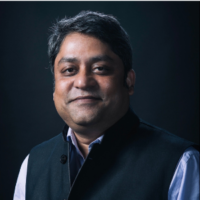
Rajesh Mahapatra has been, over the past twenty-five years, a business journalist, political analyst, public policy expert, newsroom leader, and editor. Until recently, he was the Editor at Large of Hindustan Times, where he drove organizational changes and digital innovation. Rajesh holds MPhil in Economics from JNU, New Delhi. In his words, Rajesh has returned home “to rediscover and reimagine Odisha”.
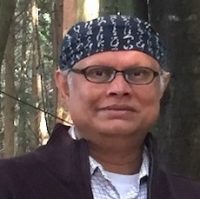
Rohan D’Souza is an Associate Professor at the Graduate School of Asian and African Area Studies (Kyoto University). His PhD on the emergence of the notion of flood control in colonial Odisha was awarded from the Centre for Historical Studies, Jawaharlal Nehru University. His research interests include climate change, environmental history, and the politics of modern technology. He routinely contributes to several journals of international repute.
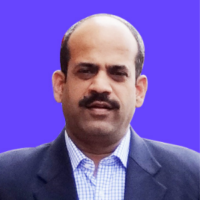
Manoj Dash has been a social development professional for the past two & half decades and has contributed to the fields of disability, child protection & development, corporate social responsibility, and sustainability. He has authored three books and a few research papers on development themes. He is now focusing on the development of Odisha, policies and governance issues that could bring in better development with people's active participation. He holds a doctoral degree in Economics from the Jawaharlal Nehru University.
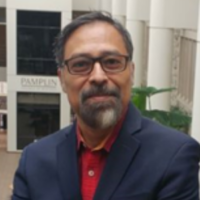
Dr Sudipta Sarangi is a professor and heads the department of Economics at Virginia Tech in the United States of America. He serves on the editorial boards of several journals and is currently working on a popular book on economics. Sarangi studied in Delhi before moving to the USA for his doctoral studies. His research interests lie in economic theory and its application to areas like networks, development economics, and experimental economics.
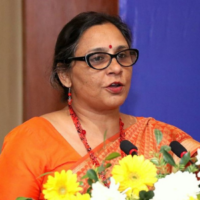
Abha Mishra is the Head of Office, United Nations Development Programme (UNDP), Odisha. She has over 28 years of experience in project management, advocacy, action based research and implementation of national development projects. Mishra has done her MSc in development anthropology. She has worked with several NGOs, and international universities like University of Frankford, Germany; University of Edinburg, Scotland;and University of Greenwich, London.
Board of Advisors
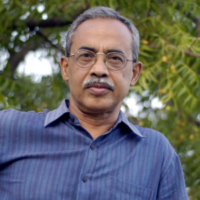
Dr Pulin B Nayak was Professor of Economics at the Delhi School of Economics, from where he retired in 2015. After completing his masters from the DSE, he earned his doctorate from the University of Rochester in 1975, before joining the DSE faculty in 1978. He has been an advisor to various government bodies, including the Prime Minister’s Economic Advisory Council, of which he was member in 2013-14.
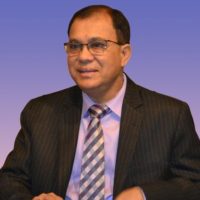
Harun Rashid Khan retired as a Deputy Governor of the Reserve Bank of India after nearly 38 years of service with the central bank. He is currently a Senior Adviser to KPMG India and serves on the boards of a few BFSI sector entities. At RBI, he had handled diverse central banking and regulatory areas and chaired the committee on rural credit and micro finance. He is an alumnus of BJB College, Utkal University, Jawaharlal Nehru University and NMIMS.
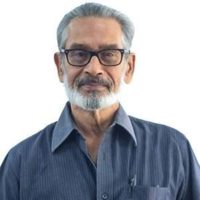
Dr. Pronab Sen, the first chief statistician of India, is the Country Director for the India Programme of the International Growth Centre. He has also had positions as Principal Economic Adviser at the Planning Commission and Secretary of the Ministry of Statistics & Programme Implementation. Dr. Sen received his PhD in Economics from the Johns Hopkins University, and MBA and MA in Economics from the George Washington University, USA. A recipient of Padma Shri, Dr. Sen is now an active commentator on the Indian economy.
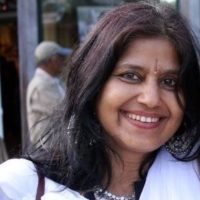
Dr Annapurna Devi Pandey is a Cultural Anthropologist, University of California, Santa Cruz. Pandey holds a PhD in sociology from Jawaharlal Nehru University and was a post-doctoral fellow in social anthropology at Cambridge, UK. She has authored numerous essays, edited books on Indian women’s activism, entrepreneurship and empowerment in India and Indian diaspora. She completed a senior Fulbright US Scholarship (2017- 2018) working in Odisha.
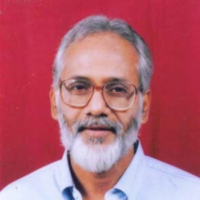
Dr Bidhu K Mohanti is an oncologist and former Professor at the All India Institute of Medical Sciences (AIIMS), New Delhi. He did his MBBS from MKCG Medical College, Berhampur, MD from PGI, Chandigarh and Palliative Care from Oxford University, UK. He has undertaken a wide range of academic, clinical and research tasks relating to cancer studies, including public health/expert assignments in MoH, Oman, IAEA, Vienna and the European Commission, Brussels.
Founding Members

Mr Abani Kumar Sahu, an advocate in the Supreme Court of India, is a native of the Jeypore town of Koraput district, Odisha. He has a fervent attachment with Odisha’s nature, culture, history, and economy. Mr Sahu did his BA (LLB) course from the Faculty of Law, University of Delhi. During his early career in law, he was attached with the legal-aid-committee of Supreme Court of India and later became the founder Convenor of Lok Adalat. Mr. Sahu participated and represented India at several international conferences.

Abha Mishra is the Head of Office, United Nations Development Programme (UNDP), Odisha. She has over 28 years of experience in project management, advocacy, action based research and implementation of national and community-level development projects. She has done her MSc in development anthropology. She has worked with several NGOs, and international universities like University of Frankford, Germany; University of Edinburg, Scotland;and University of Greenwich, London.

Dr. Ajaya K Mohanty is an internationally recognized information technology expert, with a long stint of leading and managing large- scale complex IT projects and programs for fortune 500 companies such as IBM and Deloitte. He has also experience in managing top 10 supercomputing systems in the world, both in public and private sectors, including management of global cross-functional teams in Asia Pacific, Europe and North America. Dr. Mohanty holds a PhD in Physics from University of Maryland, College Park, USA.
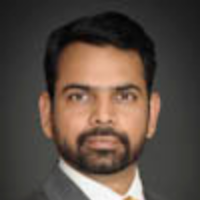
Amrit Singh Deo is the Senior Managing Director with NYSE-listed business advisory firm FTI Consulting. Deo developed the Asia Disclosure Index series to enable benchmarking and raise corporate governance and disclosure standards in India and ASEAN region. He has led marketing and communications for Ericsson in India and Sri Lanka. He is an economics graduate from Delhi University and holds MBA degree in business policy from ESADE Business School, Barcelona.

Justice Ananga Kumar Patnaik is a retired Supreme Court judge. Enrolled as an advocate with the Orissa Bar Council in 1974, he became a judge of Orissa and Gauhati high courts and Chief Justice of Chhattisgarh and Madhya Pradesh high courts. He was appointed a judge of the Supreme Court in 2009. Justice Patnaik has been part of many judicial committees and benches that have adjudicated on important matters, including IPL corruption scam, 2G spectrum, and Goa mining scam.
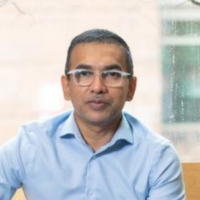
Anant Mishra is an Associate Professor at the Carlson School of Management, University of Minnesota. He specializes in supply chain management and is on the editorial board of several journals. Anant is a graduate of IIT Roorkee. Anant worked in India for a short period before moving to the USA in 2003 for his doctoral studies.

Dr Annapurna Devi Pandey is a Cultural Anthropologist, University of California, Santa Cruz. Pandey holds a PhD in sociology from Jawaharlal Nehru University and was a post-doctoral fellow in social anthropology at Cambridge, UK. She has authored numerous essays, edited books on Indian women’s activism, agency, entrepreneurship and empowerment in India and Indian diaspora. She completed a senior Fulbright US Scholarship (2017- 2018) working in Odisha. She has received several national and international awards.
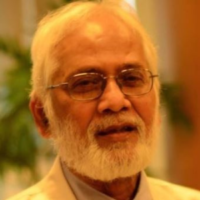
Dr Bidhu K Mohanti is an oncologist and former Professor at the All India Institute of Medical Sciences (AIIMS), New Delhi. He did his MBBS from MKCG Medical College, Berhampur, MD from PGI, Chandigarh and Palliative Care from Oxford University, UK. He has undertaken a wide range of academic, clinical and research tasks relating to cancer studies, including public health/expert assignments in MoH, Oman, IAEA, Vienna and the European Commission, Brussels.
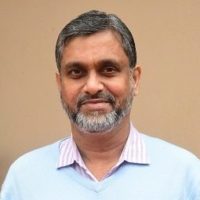
Dr D V Ramana is a professor of Accounting at the Xavier Institute of Management, Bhubaneswar since 1990. He holds MPhil and PhD in Commerce from Utkal University, Bhubaneswar. His research interests are in the areas of financial reporting, cost management, regulatory accounting with a focus on the power sector, and social capital. He works very closely with the people doing business on the streets as a part of his action research. He was on the Board of several state level enterprises of Odisha.

Harun Rashid Khan retired as the senior most Deputy Governor of the Reserve Bank of India (RBI) after nearly 38 years of service with the central bank. He is currently a Senior Adviser to KPMG India and serves on the boards of a few BFSI sector entities. At RBI, he had handled diverse central banking and regulatory areas and chaired the committee on rural credit and micro finance. He is an alumnus of BJB College, Utkal University, Jawaharlal Nehru University, and NMIMS.
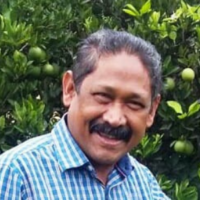
Dr Keshab Das is a Professor of Economics at the Gujarat Institute of Development Research, Ahmedabad. He holds an MPhil and a PhD in economics from Jawaharlal Nehru University. He is a recipient of the VKRV Rao Prize in Social Sciences and had been empaneled as ICCR Professor in economics. Das has been a visiting research fellow/faculty in various institutes like UK, ISS, and MSH.

Manoj Dash has been a social development professional for the past two & half decades and has contributed to the fields of disability, child protection & development, corporate social responsibility, and sustainability. He has authored three books and a few research papers on development themes. He is now focusing on the development of Odisha, policies and governance issues that could bring in better development with people's active participation. He holds a doctoral degree in Economics from the Jawaharlal Nehru University.
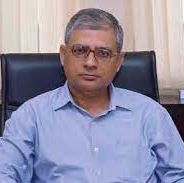
Dr. Manoj Panda is an economist associated with various research organisations in India. He was earlier Director of the Institute of Economic Growth, Delhi and of the Centre for Economic and Social Studies, Hyderabad. His research areas span monitoring and analysis of macroeconomic trends and prospects, development and applications of macroeconomic models, and interaction of growth with inequality, poverty and carbon emission.

Dr Prafulla Kumar Prusty, a senior Indian Revenue Service (IRS) official of 1990 batch is presently working as the Principal Commissioner of Income Tax of Government of India in Delhi region having oversight of matters related to 1.5 million tax payers. Dr Prusty holds a Doctoral degree in Economics from the JNU, New Delhi. His interest areas have been black economy, tax evasion, corporate governance, jurisprudence relating to cross border financial dealings, and laws related to banking secrecy and forfeiture.

Dr Pulin B Nayak was Professor of economics at the Delhi School of Economics, from where he retired in 2015. After completing his masters from the DSE, he earned his doctorate from the University of Rochester in 1975, before joining the DSE faculty in 1978. He has been an advisor to various government bodies at different points in time, including the Prime Minister’s Economic Advisory Council, of which he was member in 2013-14.

Rajesh Mahapatra has been, at various points over the past twenty-five years, a business journalist, political analyst, public policy expert, newsroom leader, and editor. Until recently, he was the Editor at Large of Hindustan Times, where he drove organizational changes and digital innovation. Rajesh holds MPhil in economics from Jawaharlal Nehru University. In his words, Rajesh has returned home “to rediscover and reimagine Odisha”.

Rohan D’Souza is an Associate Professor at the Graduate School of Asian and African Area Studies (Kyoto University). His PhD on the emergence of the notion of flood control in colonial Odisha was awarded from the Centre for Historical Studies, Jawaharlal Nehru University. His research interests include climate change, environmental history, and the politics of modern technology.

Mr Sambit K Parida is a human resource specialist currently working as General Manager, Human Resource Development and Administration at National Aluminium Company Ltd. (NALCO). Mr Parida started his professional journey with NALCO as a Management Trainee. Mr Parida completed his M.A. and M. Phil. degrees from the School of International Studies of JNU. Mr. Parida possesses special expertise in conceptualizing and developing employee engagement and welfare measures, HR procedures and policies, talent acquisitions and organizational development interventions.

Sandeep Dash is a policy advocate in economics and public finance. As a career civil servant, he has extensively worked in the central, state, and municipal governments in the realms of public policy, finance, infrastructure development, and citizen engagement. He is currently working as a consultant with the World Bank and is engaged in the domain of social protection, employment, fintech, and inclusive development.

Dr Sudipta Sarangi is a professor and heads the department of Economics at Virginia Tech in the United States of America. He serves on the editorial boards of several journals and is currently working on a popular book on economics. Sarangi studied in Delhi before moving to the USA for his doctoral studies. His research interests lie in economic theory and its application to areas like networks, development economics, and experimental economics.
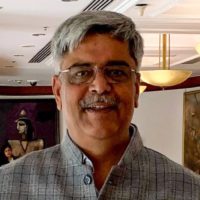
Tapas Ram Misra, a 55 a corporate tax lawyer practising in Delhi since 1990. He hails from Bhubaneswar, Odisha. He did his Master degree in Commerce from Utkal University. Later he earned his bachelor degree in Law from Campus Law Centre of University of Delhi. His practice encompasses corporate laws, tax advisory and litigation. He is actively involved in many think tanks of Odisha. As a passionate traveler and photographer, he continuously promotes Odisha, its people and culture among others.
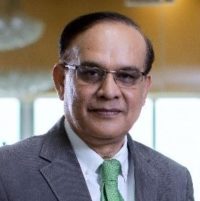
Mr. Tushar Kanti Sahu did his Master in Physics from the Ravenshaw College, Cuttack, in 1979. He was the Acting President of Ravenshaw College Students’ Union in the year 1977. He completed his MBA from Indian Institute of Foreign Trade, New Delhi, in 1985. He started his career as an Executive Trainee with Steel Authority of India Limited (SAIL) and retired from the organisation in the end of 2016 as Executive Director of Commercial and International Trade. Until early 2020, he was Group Chief Commercial Officer of G Steel PLC of Thailand. Currently, he is based out of Bhubaneswar in Odisha.



